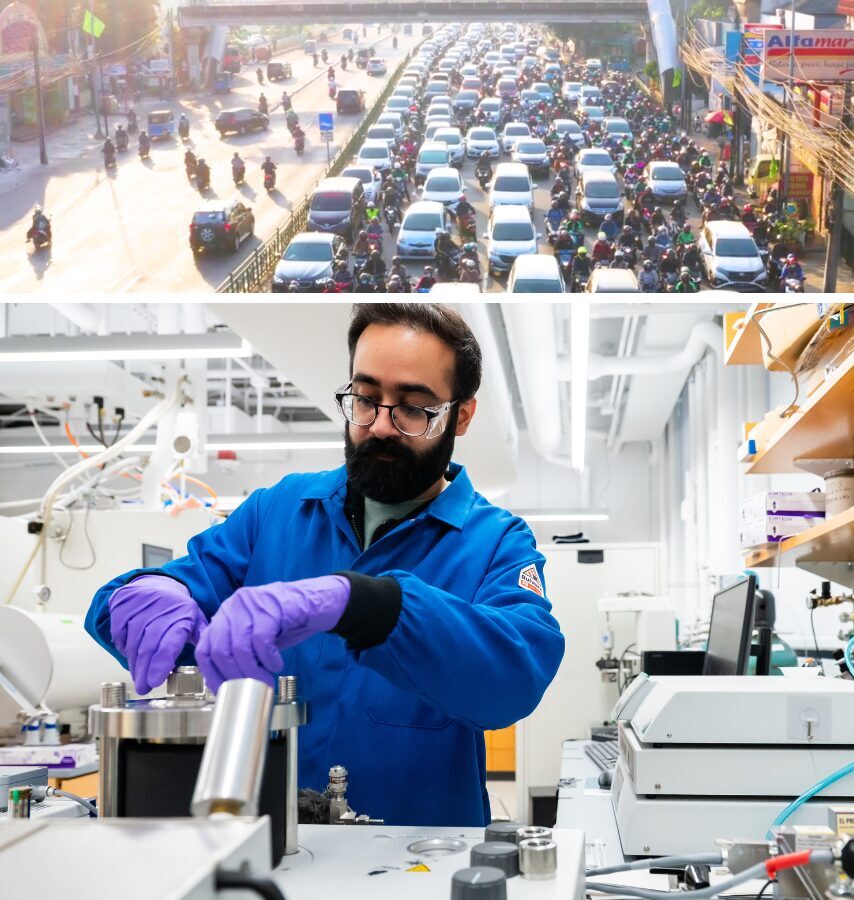Bacteria, a Book, and Rising Resistance: exploring the obscure impacts of climate change and gathering knowledge to combat climate disaster
It’s not every day that climate activist Greta Thunberg asks you to write a chapter for a book on climate change. Mauricio Santillana, Harvard University Adjunct Professor in the Department of Epidemiology at the T.H. Chan Harvard School of Public Health, and Professor of Physics at Northeastern University, was one of roughly 100 experts who were invited to contribute to Thunberg’s latest literary endeavor, “The Climate Book.”
The Climate Book highlights the less-obvious impacts of climate change, asking the question, What are the effects of climate change that we haven’t thought of? To answer it, Thunberg gathered climate insights from world-class experts including geophysicists, oceanographers and meteorologists; engineers, economists and mathematicians; and historians, philosophers and indigenous leaders. Mauricio Santillana wrote about his research on the role a warming climate has on the increase of antimicrobial resistance.
“Antibiotics are one of the most important medical resources that we have today to combat microbial infections,” Santillana said. “Unfortunately, as more people are exposed to bacterial infections, and we use antibiotics to treat them, the chances of bacteria becoming resistant to antibiotics grows.” Santillana’s research suggests that rates of antimicrobial resistance are higher in warmer climatic conditions.

Santillana’s research team conducted a preliminary study in the United States that identified higher rates of antimicrobial resistant cases in regions with warmer climatic conditions. Their initial findings were reinforced by the results in their later study, Rates of increase of antibiotic resistance and ambient temperature in Europe. This research examined a much larger dataset, collected over many years, allowing Santillana and his team to evaluate antimicrobial resistance on a temporal scale. The results were consistent. In warmer regions throughout Europe, the rates of antimicrobial resistance were significantly higher.
This paper, published in Eurosurveillance, a notable European public health journal, caught the attention of Greta Thunberg. “After publishing the paper, we received a call from Greta’s publishing team,” Santillana recalled. “They told us that Greta had had the vision for this book for a long time, and that she thought that the implications of our research were of high relevance.”
Santillana and his research team were asked to write something “down to earth, clear, and concise,” something accessible for anyone interested in learning more about climate. “[The Climate Book] is written in a way that will trigger curiosity in people,” something that is important in order to “get people to start thinking more critically about the impacts and ramifications that climate change has on communities around the world,” Santillana said.
Two other experts affiliated with the Harvard T. Chan School of Public Health contributed to Thunberg’s book: Samuel Myers, principal research scientist in the Department of Environmental Health and director of the Planetary Health Alliance; and infectious diseases epidemiologist Sarah McGough, SM ’16, PhD ’22. Professor John Brownstein, from Harvard Medical School and Boston Children’s Hospital also contributed.







